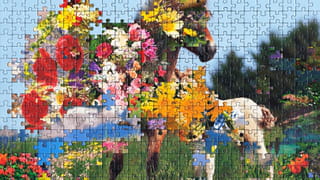Since the middle of the 18th century, the practice of celebrating love on 14 February has grown into a global event. On this day – Valentine’s Day – we are encouraged to celebrate a specific kind of love. A kind of love that is based on a “romantic ideal” involving two people, usually a man and woman, who have “feelings for each other”.
Read this story in one minute.
This romantic love is mostly passive: we hope to “find” or “fall in” it, usually no more than once (or maybe twice) in life. The associated feelings can be strong, or they can disappear, and we think of both possibilities as being beyond our control. 14 February is a collective reinforcement of the Hollywood fantasy version of love, celebrated with flowers, chocolate and candlelight dinner – or better yet, diamonds (as mining company propaganda has made us believe since the 1930s).
But is this narrow kind of love really the kind we should make a practice of commemorating?
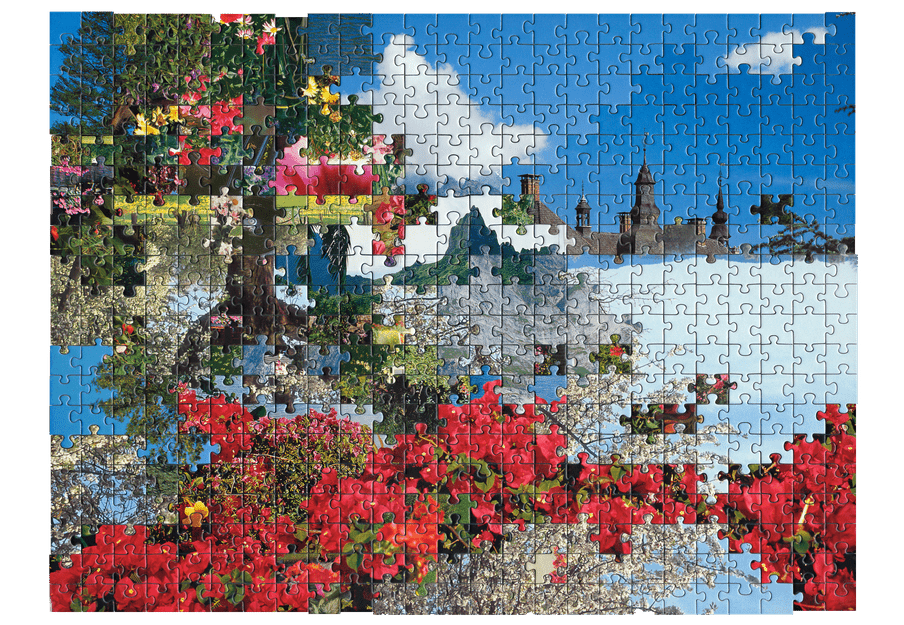
The foundations of love
From the moment we are born, we are hardwired to seek care and connection. As early as our first two years of life, when we are developing our personalities, memories and perceptions of the world, we learn which behaviours are rewarded with emotional support – and which aren’t. We take relationship-building cues from patterns of encouragement and generosity, or scolding and deprivation. We learn who we can turn to for a sense of connection and how we need to act to improve our odds of not feeling alone.
These earliest years form the foundations of our life-long understanding of love. We learn that love can be conditional and that we might have to “earn” it by prioritising other people’s needs at the expense of our own. Often, we internalise ideas of a fantasy love that will complete us. But as we age, we struggle to maintain relationships that offer us the Hollywood ideal – let alone ones that “complete” us.
From an early age, we learn that we might have to ‘earn’ love by prioritising other people’s needs at the expense of our own
Contemporary urban existence isolates us and disconnects us from nature, making it harder for us to see ourselves as being part of a collective experience of life. Rural life is often marked by poverty, lack of public services, and bleak future prospects. And the globalised economy puts immense pressure on our physical and psychological health, both personal (in the workplace and in private life) and planetary (climate change, loss of biodiversity, widespread violence).
As a result of all this, many of us have developed ways of seeing and seeking love that are maladaptive. Childhood experiences of abandonment, diminishment or harm within our families deeply affect our ability to form secure attachments to the people we care about. As we grow up in patriarchal settings marked by domination, control and violence, we integrate defensiveness and emotional dishonesty into our relationship repertoire. When our needs go unmet, we internalise negative ideas about the legitimacy of those needs or our right to make requests. And when we fail to find the kind of fantasy romantic love that we have been conditioned to believe will finally complete us, it further confirms whatever negative beliefs we may have about our worthiness.
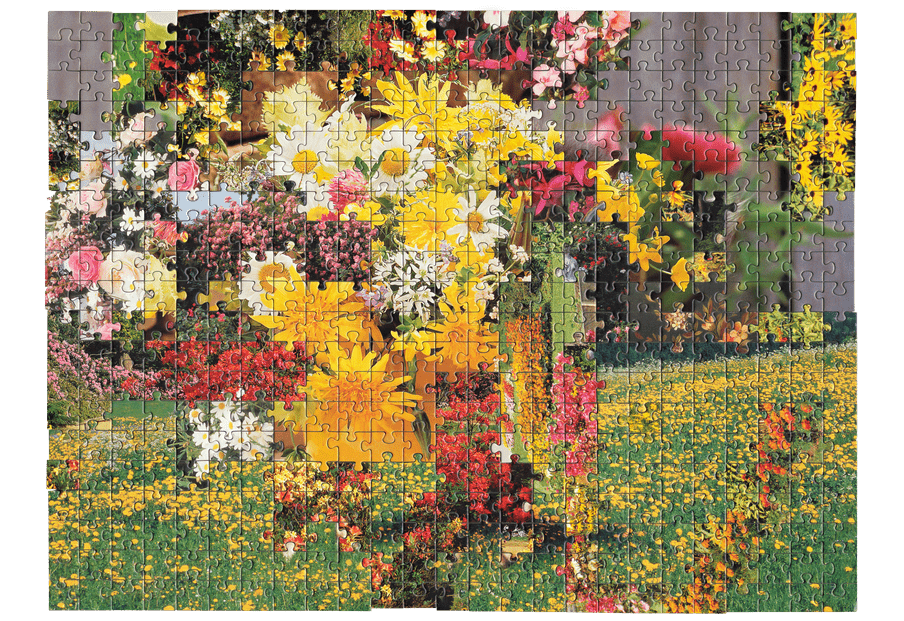
The commercialisation of romantic love
Even worse, the media, the film industry and other large corporations have greatly shaped our ideas of love in ways that are, in essence, purely driven by profit. In the early 20th century, when the “romance industry” was created by Hollywood and diamond-mining companies, a particular interpretation of love began to be pumped into the mainstream. It made us believe romance was the most important form of love. Hollywood frames love as an emotional rollercoaster with grand displays of masculine bravery and generosity in exchange for feminine devotion and shows us tidy, saccharine futures unmarked by the complications of real life.
In this narrative, other forms of social connection – such as friendship, voluntary care, and relationships with family members – are erased, sidelined or even vilified. To this day, we have not shed the cultural touchstone of love as a dreamscape featuring a wealthy, dashingly reckless man and his unspoiled damsel in distress, both of them eternally young, able-bodied, thin and high on endorphins.
Just check your inbox for all those Valentine’s special offers today.
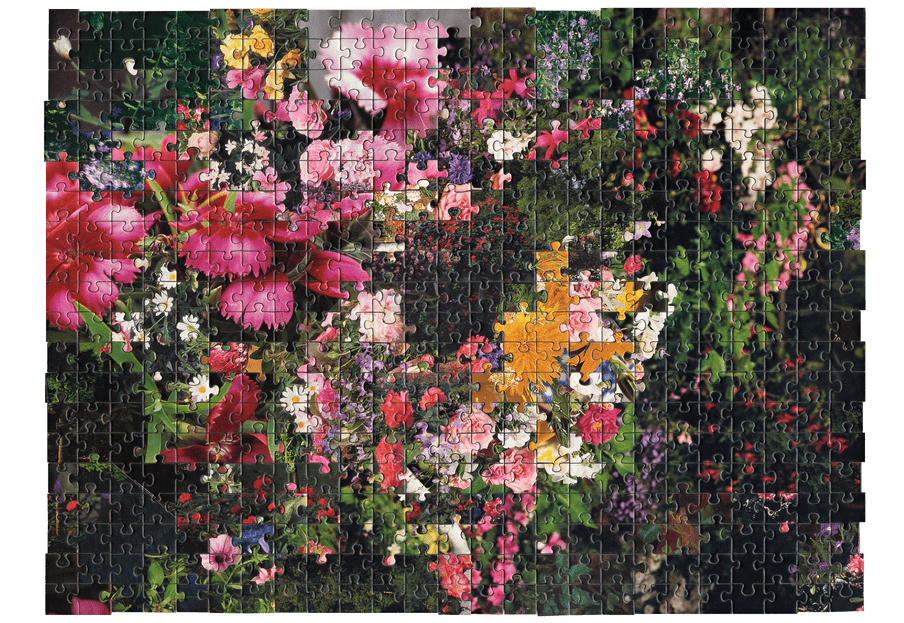
The power of practising love
But the thing is: love is not a commodity, not a fantasy, and not even merely a feeling. It isn’t this elusive objective, like a rare Pokémon that will confirm our luck and prowess when we find it. When we think of love in this way, as something that we have little control over and are at the mercy of, we are buying into a narrative that was developed to make corporate executives rich. While it is true that romantic love can feel like a serendipitous, once (or 12 times) in a lifetime experience, attraction or chemistry alone are not love.
There’s a reason why almost all religions revolve around a core belief: that love elevates our humanity, bringing us in close communion with a divine force. Our highest calling as human beings is the practice of love. We come into our fullest selves when we embrace love as a verb, rather than as an ideal, a future goal, or a feeling.
There is so much power and potential in the practice of love. Even the impetus for social transformation and progress is rooted in love
There are millions of different ways to be human, but when we think of love as a practice, a world of new possibilities opens up to us.
Today, as people around the world celebrate mostly romantic love using mostly commodified scripts, it’s the best moment to remind ourselves that real love is much bigger than the feeling or fantasy we celebrate.
There is so much power and potential in the practice of love. Even the impetus for social transformation and progress is rooted in love. Best of all, this kind of love is not out of reach for any of us because it starts with an intimate understanding that, as human beings, we all have the capacity to love. It’s a thing we can all practise.
So what does it mean to practise love?
When we choose love, we choose to practise curiosity, care for ourselves and others, the responsible use of our power for collective benefit, and undiscriminating respect.
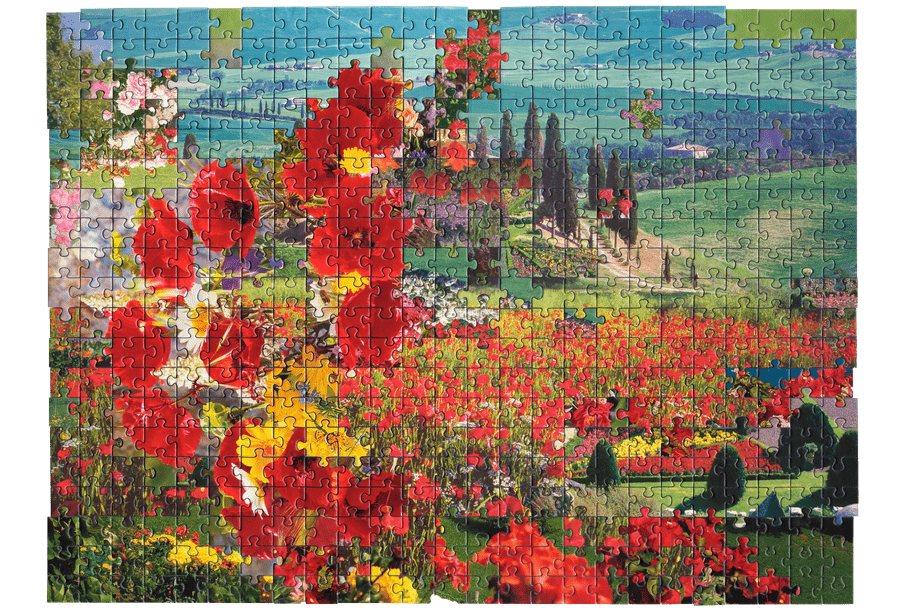
Love is embracing curiosity
Embracing curiosity means we seek knowledge about ourselves, other people, and the world around us. We communicate with the desire to discover, instead of just waiting for a chance to air superior arguments. We listen actively because we are interested in diverse perspectives, understanding that they’re as valid as our own experiences. Our own are not the only correct ones. We do not dismiss or discredit ideas just because they are different from the ones we already hold. We remain open to new information, believing that more knowledge enables us to be more loving.
Love is practising care
Practising care enables us to embrace empathy, generosity and compassion towards people. We treat everything and everyone with kindness and consideration, and the protection of people and planet from harm are a priority. We reject violence, defining minimum acceptable standards for our interactions and striving to outdo them. We are as gentle as possible, even when we or others fall short of these standards, but we do not compromise on the things we believe that people deserve. We defend ourselves and others, we attend carefully to personal and collective experiences of pain, and we prioritise wellbeing over profit or even civility that allows negative experiences to continue.
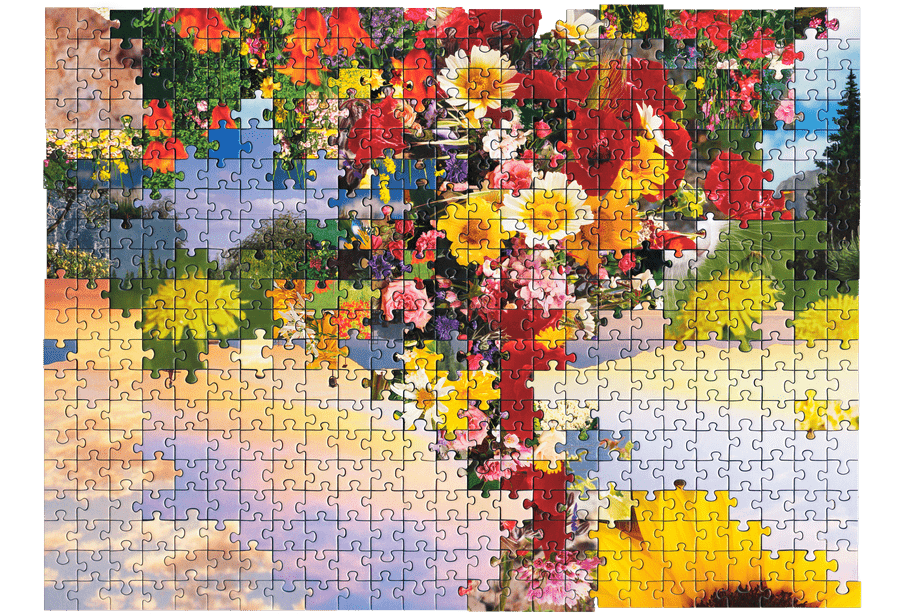
Love is using power responsibly
Using power responsibly means that we embrace our personal power without disempowering others. We can stand firm in our knowledge of ourselves and our place in the world while giving other people the space and support they need to do the same. We reject the drive to control, manipulate or deceive others for personal gain, and nor do we accept such treatment. We define and set healthy boundaries, we tell the truth even when it may result in discomfort, and we embrace disagreement or conflict because that is necessary for growth. We hold ourselves and others accountable, knowing that this is how we keep ourselves and our communities safe.
Love is showing undiscriminating respect
Undiscriminating respect starts with self-respect. Self-respect is fundamental to having a healthy relationship with one’s own personality, experiences and desires. In the same way, it is impossible to be in a community with others without being respectful of their existence, perspectives and rights. Respect enables us to show up in the world fully while allowing others to do the same. It enriches collective experiences, making it possible for us to contribute to the best of our ability, honour our needs, and make room for the huge variety of possibilities inherent in humanity. In fact, in the absence of the “feeling” of love – that pleasant, positive, endorphin-heavy physiological response that we have to people with whom we feel an affinity – respect can often suffice.
It’s been said often, because it’s true, that love can change the world. When we do it right, love really does move us towards better personal, social and political realities. Or as Maya Angelou once put it succinctly: “Love liberates.”
On this day, I wish you true love – and freedom.
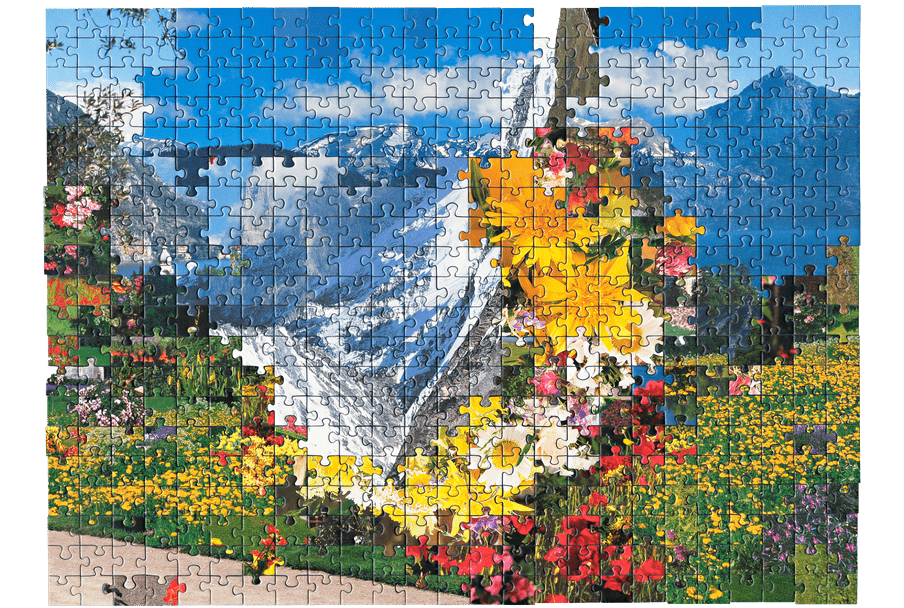
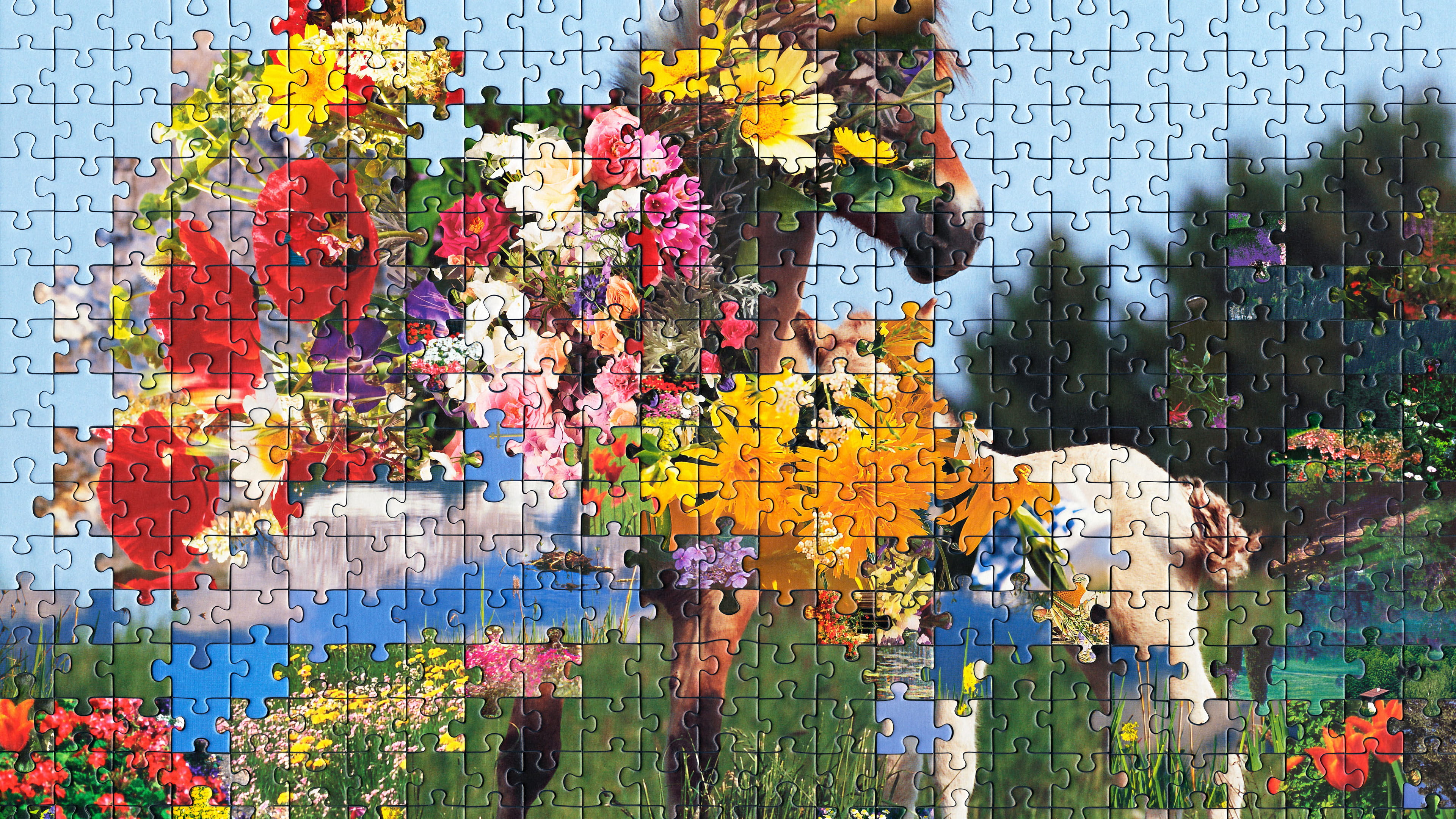 About the images
For his series Love = Love, US American artist Kent Rogowski created spectacular and fantastical new collages by combining pieces from 60 puzzles that had bland images of flowers, skies and mountains. The original puzzles were all manufactured by the same brand, but Rogowski likes to transform the generic into the personal, playing around with the tension between mass consumption and emotions, and questioning what role these products play in our cultures. His confusing and intriguing new images show love’s wonderful range of possibilities and the beauty of thinking outside of the box. (Lise Straatsma, image editor)
About the images
For his series Love = Love, US American artist Kent Rogowski created spectacular and fantastical new collages by combining pieces from 60 puzzles that had bland images of flowers, skies and mountains. The original puzzles were all manufactured by the same brand, but Rogowski likes to transform the generic into the personal, playing around with the tension between mass consumption and emotions, and questioning what role these products play in our cultures. His confusing and intriguing new images show love’s wonderful range of possibilities and the beauty of thinking outside of the box. (Lise Straatsma, image editor)
 Not a member of The Correspondent yet?
The Correspondent is a member-funded, online platform for collaborative, constructive, ad-free journalism. Choose what you want to pay to become a member today!
Not a member of The Correspondent yet?
The Correspondent is a member-funded, online platform for collaborative, constructive, ad-free journalism. Choose what you want to pay to become a member today!
Dig deeper
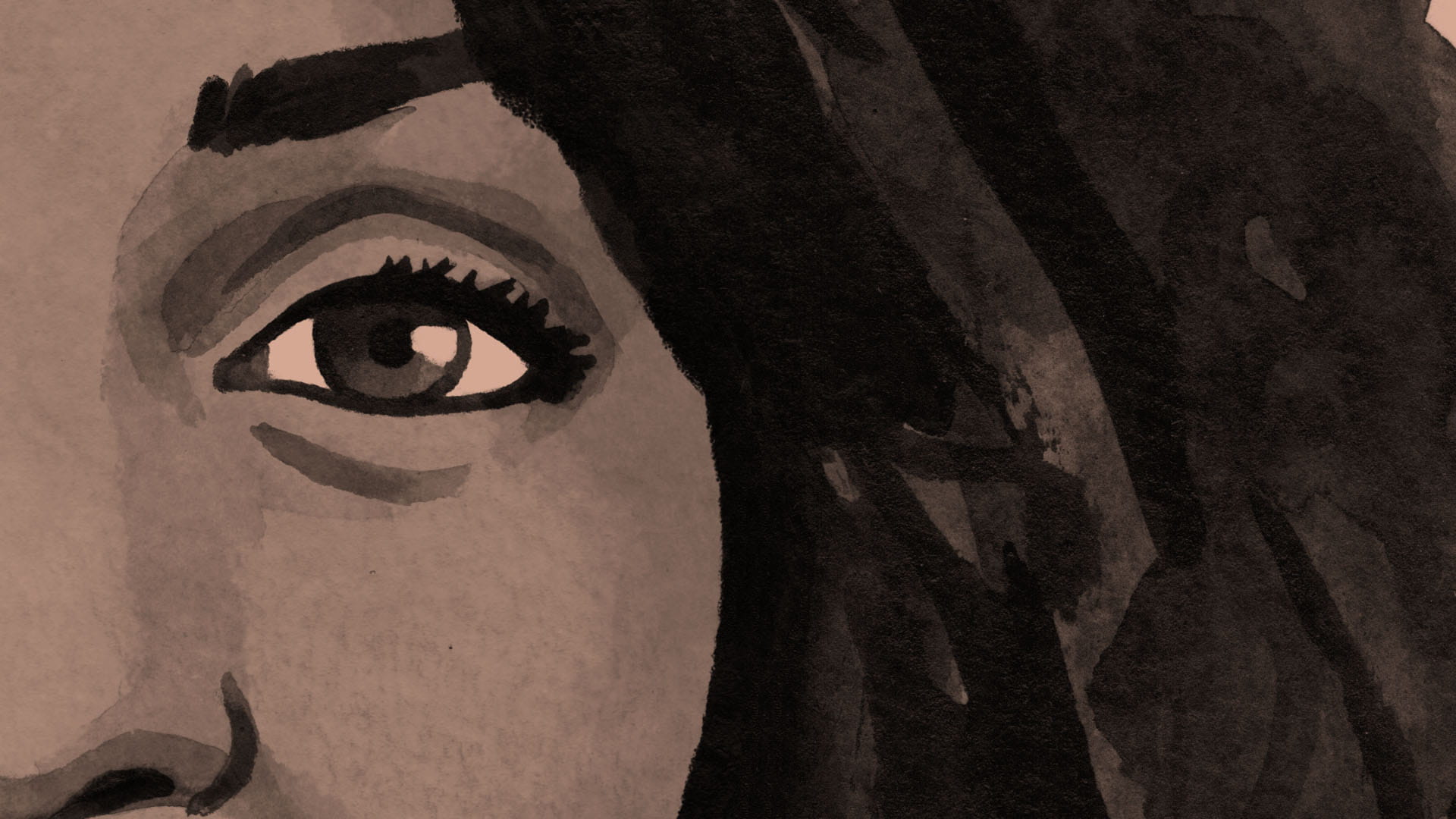 Love, sweat and leaflets: how the same-sex marriage movement won in Ireland
The most successful movements bring about political change by putting the most fundamental part of political activism at their cores: love for fellow humans, and a desire to make their lives better.
Love, sweat and leaflets: how the same-sex marriage movement won in Ireland
The most successful movements bring about political change by putting the most fundamental part of political activism at their cores: love for fellow humans, and a desire to make their lives better.


